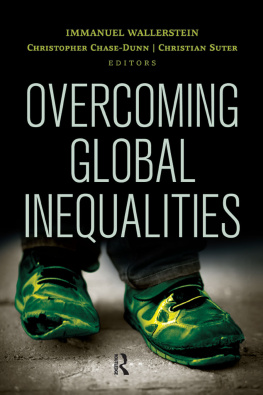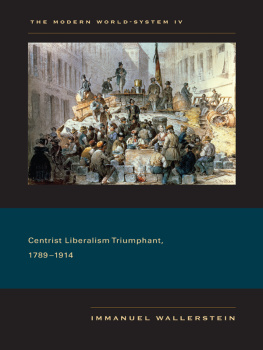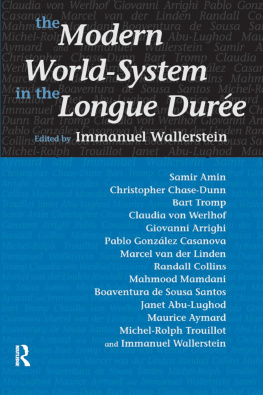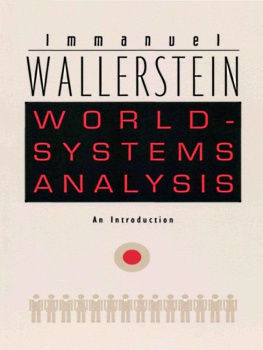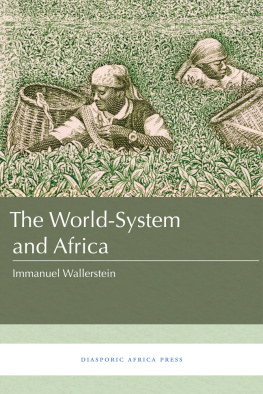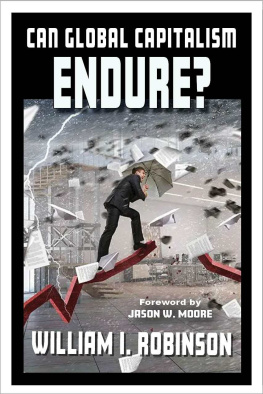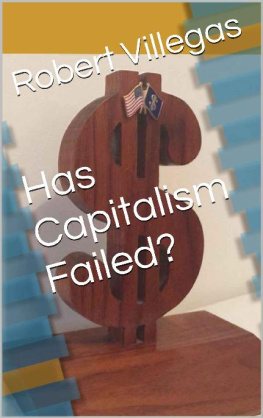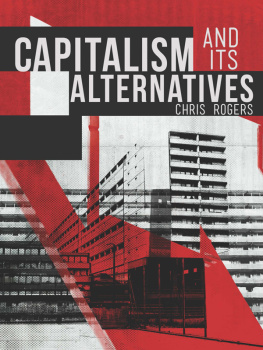DOES CAPITALISM HAVE A FUTURE?

DOES CAPITALISM HAVE A FUTURE?


By
IMMANUEL WALLERSTEIN
RANDALL COLLINS
MICHAEL MANN
GEORGI DERLUGUIAN
And
CRAIG CALHOUN


Oxford University Press is a department of the University of Oxford.
It furthers the Universitys objective of excellence in research, scholarship,
and education by publishing worldwide.
Oxford New York
Auckland Cape Town Dar es Salaam Hong Kong Karachi
Kuala Lumpur Madrid Melbourne Mexico City Nairobi
New Delhi Shanghai Taipei Toronto
With offices in
Argentina Austria Brazil Chile Czech Republic France Greece
Guatemala Hungary Italy Japan Poland Portugal Singapore
South Korea Switzerland Thailand Turkey Ukraine Vietnam
Oxford is a registered trade mark of Oxford University Press
in the UK and certain other countries.
Published in the United States of America by
Oxford University Press
198 Madison Avenue, New York, NY 10016
Oxford University Press 2013
All rights reserved. No part of this publication may be reproduced, stored in a retrieval system, or transmitted, in any form or by any means, without the prior permission in writing of Oxford University Press, or as expressly permitted by law, by license, or under terms agreed with the appropriate reproduction rights organization. Inquiries concerning reproduction outside the scope of the above should be sent to the Rights Department, Oxford University Press, at the address above.
You must not circulate this work in any other form
and you must impose this same condition on any acquirer.
Library of Congress Cataloging-in-Publication Data
Wallerstein, Immanuel Maurice, 1930
Does capitalism have a future? / By Immanuel Wallerstein, Randall Collins, Michael Mann, Georgi Derluguian and Craig Calhoun.
p. cm.
ISBN 9780199330843 (hardback) ISBN 9780199330850 (paperback) 1. Capitalism.
2. Middle class. 3. Technological innovationsForecasting. I. Wallerstein, Immanuel. II. Title.
HB501.W2935 2013
330.122dc23
2013018969
9780199330843
9780199330850 (pbk.)
9 8 7 6 5 4 3 2 1
Printed in the United States of America on acid-free paper
CONTENTS

IMMANUEL WALLERSTEIN, STRUCTURAL CRISIS, OR WHY CAPITALISTS MAY NO LONGER FIND CAPITALISM REWARDING
RANDALL COLLINS, THE END OF MIDDLE-CLASS WORK: NO MORE ESCAPES
MICHAEL MANN, THE END MAY BE NIGH, BUT FOR WHOM?
GEORGI DERLUGUIAN, WHAT COMMUNISM WAS
CRAIG CALHOUN, WHAT THREATENS CAPITALISM NOW?

Collective Introduction
Immanuel Wallerstein, Randall Collins, Michael Mann, Georgi Derluguian, and Craig Calhoun
Coming decades will deliver surprising shocks and huge challenges. Some of them will look new and some quite old. Many will bring unprecedented political dilemmas and difficult choices. This may well begin to happen soon and will certainly shape the adult lives of those who are young at present. But that, we contend, is not necessarily or only bad. Opportunities to do things differently from past generations will also be arising in the decades ahead. In this book we explore and debate, on the basis of our sociological knowledge of world history, what those challenges and opportunities will most likely be. At bottom, most troubling is that with the end of the Cold War almost three decades ago it has become unfashionableeven embarrassingto discuss possible world futures and especially the prospects of capitalism.
Our quintet gathered to write this unusual book because something big looms on the horizon: a structural crisis much bigger than the recent Great Recession, which might in retrospect seem only a prologue to a period of deeper troubles and transformations. Immanuel Wallerstein explains the rationale for predicting the breakdown of the capitalist system. Over the next three or four decades capitalists of the world, overcrowding the global markets and hard pressed on all sides by the social and ecological costs of doing business, may find it simply impossible to make their usual investment decisions. In the last five centuries capitalism has been the cosmopolitan and explicitly hierarchical world-market economy where the elite operators, favorably located at its geographical core, were in a position to reap large and reasonably secure profits. But, Wallerstein argues, this historical situation, however dynamic, will ultimately reach its systemic limitations, as do all historical systems. In this hypothesis, capitalism would end in the frustration of capitalists themselves.
Randall Collins focuses on a more specific mechanism challenging the future of capitalism: the political and social repercussions of as many as two-thirds of the educated middle classes, both in the West and globally, becoming structurally unemployed because their jobs are displaced by new information technology. Economic commentators recently discovered the downsizing of the middle class, but they tend to leave the matter with a vague call for policy solutions. Collins systematically considers the five escapes that in the past have saved capitalism from the social costs of its drive for technological innovation. None of the known escapes appears strong enough to compensate for the technological displacement of service and administrative jobs. Nineteenth- and twentieth- century capitalism mechanized manual labor but compensated with the growth of middle- class positions. Now the twenty-first century trajectory of high-tech is to push the middle class into redundancy. This leads us to another hypothesis: Might capitalism end because it loses its political and social cushion of the middle class?
Craig Calhoun argues to the contrary that a reformed capitalism might be saved. Calhoun elaborates on the point, recognized by all of us, that capitalism is not merely a market economy, but a political economy. Its institutional framework is shaped by political choice. Structural contradictions may be inherent in the operation of complex markets but it is in the realms of politics that they may be remedied, or left to go unchecked to destruction. Put differently, either a sufficiently enlightened faction of capitalists will face their systemic costs and responsibilities, or they will continue to behave as careless free riders, which they have been able to do since the waning of liberal/left challenges a generation ago. Just how radical will be the shift from contemporary capitalism to a revamped future system is an open question. A centralized socialist economy is one possibility, but Chinese-style state capitalism may be even more likely. Markets can exist in the future even while specifically capitalist modes of property and finance have declined. Capitalism may survive but lose some of its ability to drive global economic integration.
Next page

